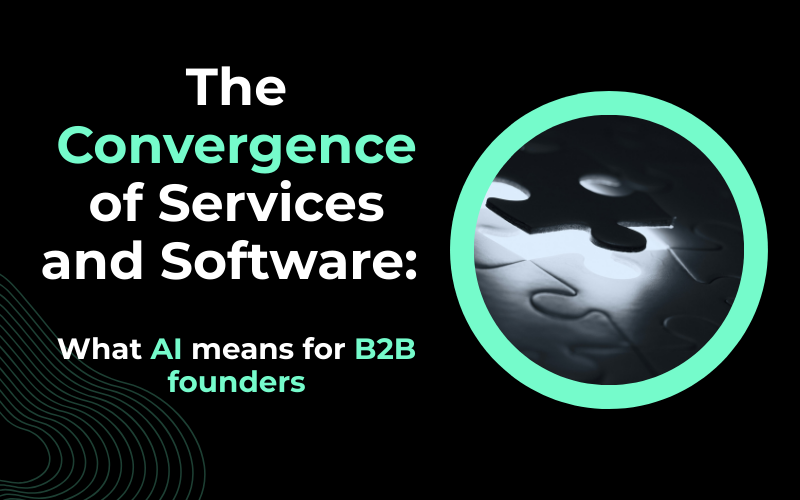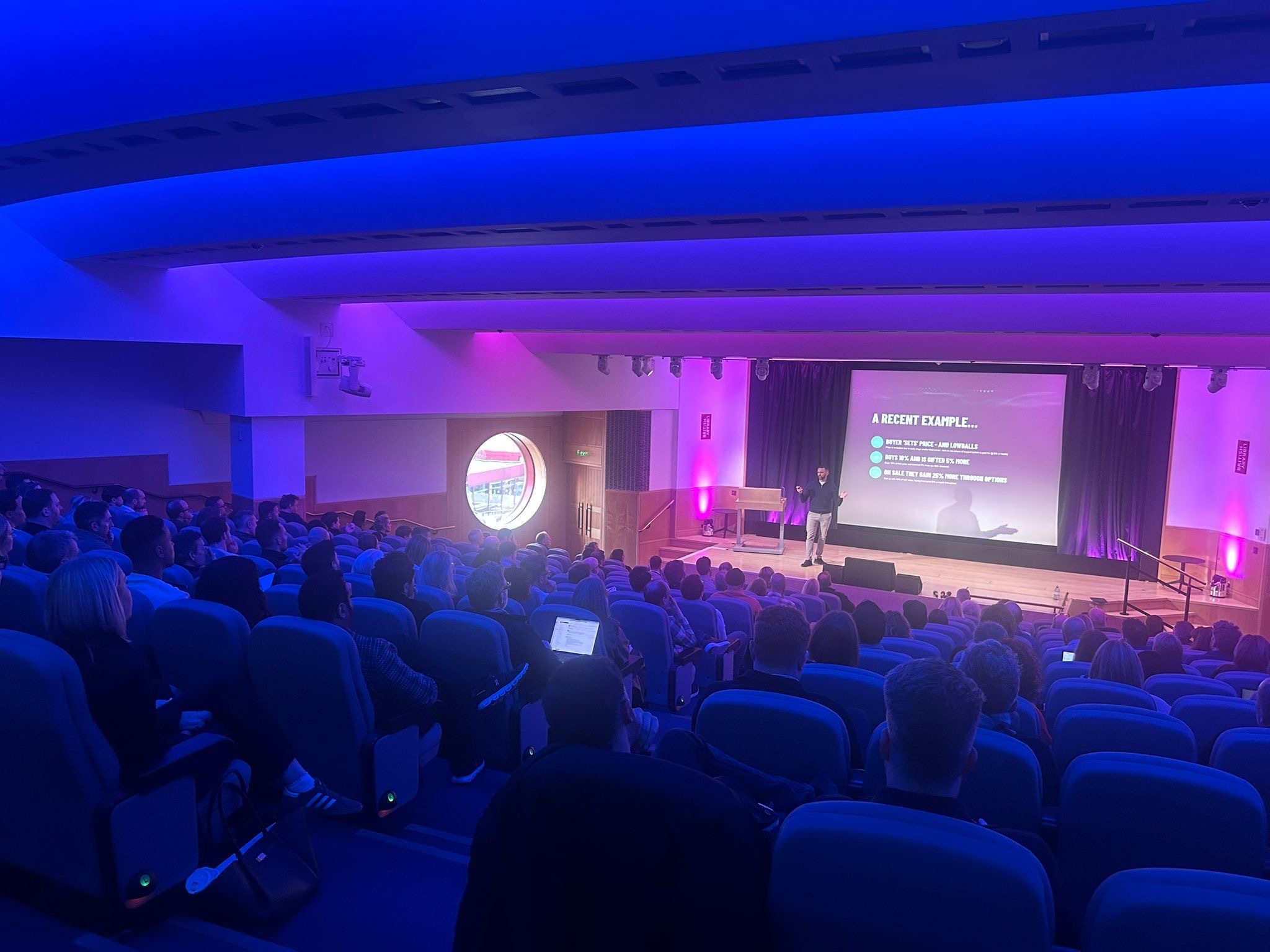The first question any experienced start up investor is often asked is ‘How do you choose which companies to invest in?’
It is a widely known fact that picking out great start ups from the plethora of also rans is a task akin to finding needles in haystacks but having reviewed more than 1,000 pitch decks over the last two years (and many more before) we’ve been able to distil down a framework that can massively improve the ‘success’ rate.
And in the interests of aiding the wider UK start up investment industry back more winners and create much needed jobs we thought we’d open up our own process, sharing the 11 of our most important ‘evaluation pillars’ that we use every day when we’re considering an investment opportunity…
1. The founding team
For those investing in early stage there can only be one leading contender for most critical evaluation; just how hungry, focused and thick skinned are the founders?
It may seem like an obvious question to ask but in the noise and excitement of a great pitch it can often be overlooked. And you also have to know what to look for.
As we have all run and sold businesses, we are very aware of the traits necessary to achieve success and it simply is not possible to be aware of their importance if you are simply from a career investment of finance background. You have to live through the turmoil to understand just what it takes to drag a new business through the mud for long enough to succeed.
Having lived through the pain of the start-up phase we understand how important resilience is, alongside a level of willpower that would appear to be bordering-on-insanity to any outsider. It’s the ONLY way to survive and push through the inevitable brick walls that stand in the way of progress.
We also like to focus on the relationships the founder has with other team members (can they lead people towards a compelling vision of the future, and what kind of culture will they build?) as well as with any co-founders in the business.
Compatibility is a must, as well as a crystal clear and precise delimitation of duties and responsibilities. A history of relationship helps also, but it not always an imperative if the former exists and has been a focus from day one, particularly if the co-founders also bring a complimentary set of skills.
And then of course there is the ability to pivot, quickly and without any looking back. The current pandemic has been the perfect reminder of the need for this skill as a tool to both avert disaster but also take advantage of changes in consumer behaviour.
2. The Idea
The quality of the idea is an obvious inclusion, but it is certainly worthy of discussion as game that can only be played by people with a wide-ranging view of what is changing in the world around us and which new technologies are being developed to meet that need.
As we see so many pitches each week we are able to take a macro view of where the effort (and competition) is building and by combining this insight with an understanding of rules such as the law of accelerating returns and emerging tech trends we can focus down our efforts on markets that offer a good combination of growth and a lower level of competition.
Add to this the uniqueness of the idea and how easy it will be via some combination of talent, IP and velocity to build a protective moat and we have the makings of a recipe to truly dig deeper on.
Which brings us on to Pillar 3…
3. Sector, Size and Simplicity
Start-ups are created in almost every possible industry and niche imaginable and the noise can often be deafening if you don’t focus down your area of interest and experience. I
Initially we do that with the simple ethos that if we invest in a business, we want to be able to add significant value on an ongoing basis. For us that means focusing on technology-enabled (or led) businesses that are digital first and looking to transform an industry with a pin sharp understanding of who its customer is and why. This initial filter means we can then focus in on and understand the opportunity in much greater detail.
The next step is then to establish sectors where growth is certain – and this picture changes all the time, as Covid has proved. A lot of this comes down to looking at consumer habits and cultural shifts, such as around the way we shop, communicate, eat, socialise and so on.
The one slide in every pitch deck that we do ignore, however, is the Total Addressable Market overview. It’s meaningless in many respects and so we prefer to look on a micro level and at financial forecasting to see if the plan is realistic and achievable. Getting this right, as finger-in-the-air as it often is when looking at early-stage businesses, is as good a signal as you’ll find in measuring just how competent the team is commercially and ground in reality they are.
And lastly we come to the point of simplicity. Whilst it’s cool and trendy to invest in technology that baffles as much as it delights the real victories lie in the simple. And much of that comes down to timing.
It is ‘new’ tech that so often falls into the ‘flashy’ bucket and that’s often because it is the first time you’ve really spent much time looking at it. There are also usually very few, if any, truly successful businesses built on it and little working knowledge of its consumer benefits.
Blockchain is a great example of this and whilst we know that in the future it will transform how we do business and live our lives in many sectors it is still very much a long shot to back the right business.
Instead we look for the ideas that are simple solutions, often discovered to improve on a system or way of doing something that has existed for some time but has become less efficient or effective. The very best ideas come from people who have operated in that ‘legacy’ field historically and have unique insight into how it can be improved.
4. Burn Rate and Runway
If ever there was a year when runway matters and building in contingency is critical to any funding conversation, then 2020 is it.
Covid has pushed many start-ups to the brink, just when they thought they were on the launchpad to the moon. In the good times this is too easily forgotten and it’s for this very reason that we push hard on to ensure that any funding round is designed to give the start-up in excess of 12 months runway without any revenue growth, or, at times, any revenue at all.
And like any good early stage start-up we want to see that the founders are not seeing the opportunity to increase salary either. Whilst fair renumeration is important market rate is not at this stage. The equity alone and opportunity build a significant business should be incentive enough.
5. Funding to Date and Round Plan
As part of that conversation, it is also important to get a feel of funding (and spending) to date. A history of managing cash well is critically important before diving in as whilst we support growth spending, historic management of cash and cashflow is the very best measure of future behaviour.
Given how the pandemic has reminded us of the importance of smart cash flow management, the ability to be frugal cannot be over-estimated. Come across a business that has already burnt through hundreds of thousands of pounds and questions should be asked.
And then there comes the question of how much they are raising, and why. Expect to see a detailed breakdown of exactly how that number will be spent and over what runway timeline.
Our expectations are usually that the round should give the business in excess of 12 months without further revenue growth, because things always take longer than any projection may suggest.
And then of course, there is the Options Pool. Ensuring that there is provision on the Cap Table to attract increasing strength into the senior team as the business grows is imperative, and you want to be able to see that within the plan from day one as it proves the founding team are aware, they’ll need further help to get to scale. Exhibiting a self-awareness and understanding that they can’t do it all alone is a critical characteristic to have and we look for those who are keen to surround themselves with better people.
6. Fundraising Strategy
It is very easy to fall into the trap of starting a business to solve a key problem or inefficiency but then end up spending all of your time working on constant fundraising rounds, especially if you have started a capital intensive business.
There are occasions when it is necessary of course, and if that is the case and you are considering a space that has a high requirement for capital then you need to ensure the founding team has the ability to sell their vision and attract investor cash.
Raising money is a skill in itself and a propensity to attract PR and look for opportunities to promote personal brands as well as the that of the business are attributes that are critical to the fundraising process.
But it can also be a distraction for some, and it is for this reason that we like to see co-founders, or strength in depth as this allow for one external facing founder to push for investor cash and to manage those relationships, whilst a super strong operationally focused co-founder ensures that the vision and plan is actually delivered.
The time to be cautious is when you find a start-up great at that fundraising but without the backbone behind it to deliver on the plan.
7. Clarity of Vision
There is a saying that as a founder you must ‘have your head in the clouds but your feet on the ground’ and it’s important they have the ability to sell a strategic vision of where they are heading and why, as well as owning the detail of the plan.
The big picture is hugely important of course – we like a big, audacious goal as otherwise investment risk/reward simply doesn’t add up for our investors – and so seeing a bold vision of the future beautifully brought to life by a contagious founder is also a prerequisite for investment.
Great entrepreneurs often stand out with an innate and more-often-than-not cult-like ability to paint a vivid picture of the future that excites, enthrals and also feels believable in equal measure.
Find that and the investment decision becomes 50% easier than it might otherwise be!
8. Defined Growth Strategy
Early-stage investment rounds are regularly built around either finalising an MVP and taking it to market or to kickstart a sales and marketing plan to exponentially grow early revenues.
The two very often go hand in hand as part of the same conversation of course but irrespective of whether or not the round is designed to fund growth there should be a detailed, expert plan around exactly how they plan to achieve their forecasts.
If it isn’t there, or has holes in it, then see it as a red flag.
9. The Moat
As much as we like great ideas, however, they have very little value unless they are defensible. It is now almost impossible to find a market without quality competition and so any start up must be able to exhibit why they can create a ‘moat, and how they have gone, or are going about it.
That doesn’t automatically mean they must have patented IP etc. (although that can certainly help) but that they have a culture that fosters innovation and velocity. ‘Move quickly and break things’ is a good motto for early-stage start-ups to hold onto for as long as possible as it’s something larger, mor established, businesses can’t do well.
If the team has a unique set of skills and experiences, then this is also worthy of ‘moat’ classification of course and by harnessing this you can win much more easily than others attempting to take you on.
10. The Cap Table
The cleaner the cap table is in the early days the better, for several reasons. Firstly, it keeps decision making simple. If lots of people have skin in the game then they, rightly, feel like they have a say, and this can slow progress and create unnecessary tension.
Larger equity shares also give founders much more flexibility for the future as it means things like options pools, critical to attracting further key employees as the business grows, are less impactful on the value of their stakes. It also means that the runway is longer for further fundraising as dilution shouldn’t take them to a point where the founder is no longer fairly rewarded come sale.
11. Can we Add Value?
And last but certainly not least is a measure that sits front and centre of our own belief system. In some ways it is the very reason for our existence.
Whilst our investment cash helps early-stage businesses scale the support we give across sales, marketing, strategy and tech is evidently more valuable. Cash is not difficult to come across if you are an in-demand start up, but it alone can create as many problems as it solves.
As a team of entrepreneurs we have, more often than not, ‘been there’ when issues and opportunities arise and experience in working through those options makes for better decision making, less mistakes and growth acceleration. Ask any one of our portfolio founders and they’ll tell you this very story….



